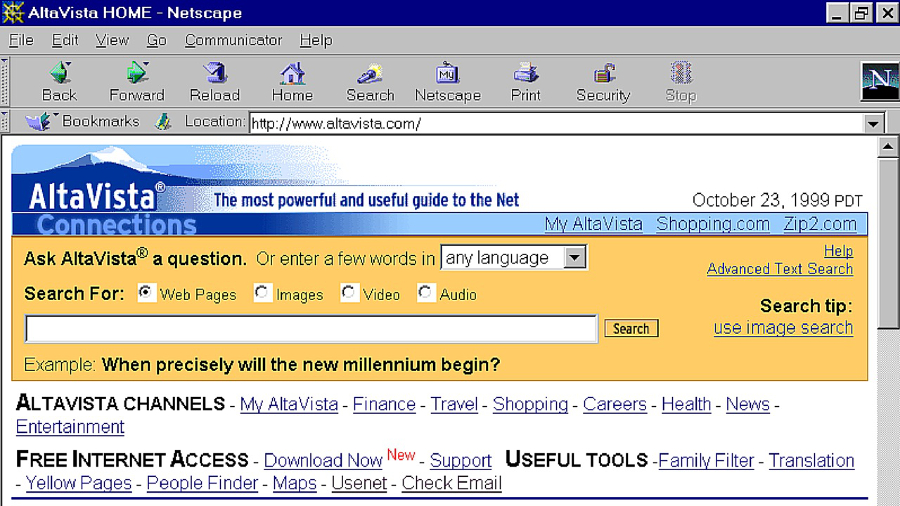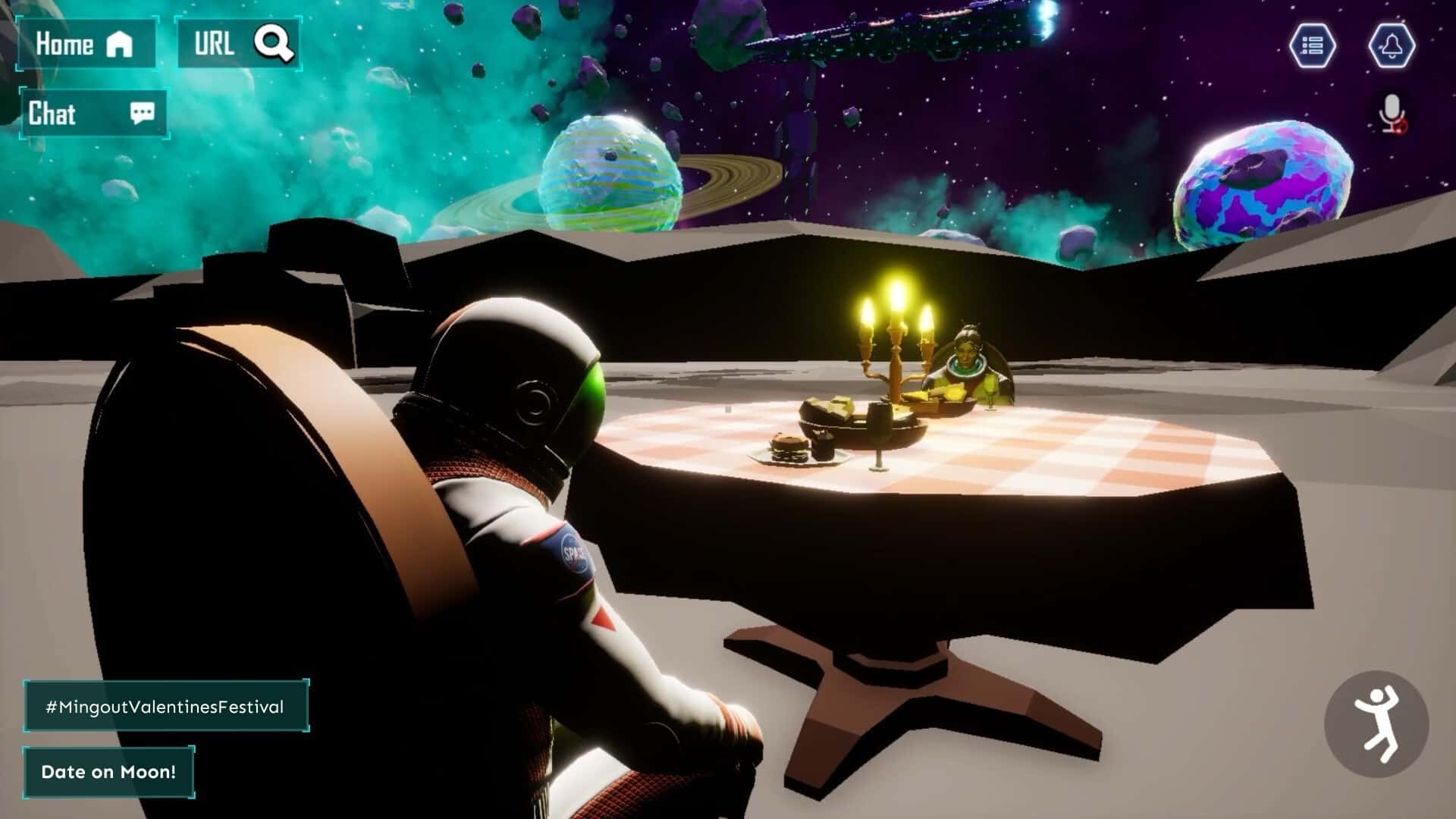Thinking about the concept of "Metaverse", which has become quite famous lately, I realized that some of the things we used to see in movies come true. How Does? Let's first examine how the internet has evolved until we hear about the concept of Metaverse. Until this concept emerged, we can say that the internet has evolved. We can say that "WEB" is updated, strengthened and complicated every 10 years. The 10 years between 2020-2030 will be known as Web 4.0. Metaverse, on the other hand, can be called the first advertisement of this 10-year process. Instead of diving directly into Web 4.0, let's take a look at the history of this evolution.
Web 1.0 (1990–2000)

In this period, which we can call the primitive age of the Internet, users could not perform operations such as adding, removing and editing on the web. Most websites were available as read-only. It was a period when html-based sites were widely used. In summary, it was a period when we accessed and read the books in a library, but could not do activities such as editing and commenting.
Web 2.0 (2000–2010)
In this period, users were also able to participate in the interaction and engage in activities such as editing, sharing and adding information, as well as accessing information. The concept of the social web was formed in this period, users were able to interact with each other. Socialization needs triggered the creation of admin and user panels on the Web. In this period, programming languages such as ASP.NET, PHP and technologies such as RSS, API, AJAX, XML, tools such as blog, podcast, social network, Wiki, ePortfolio began to be widely used.
Web 3.0 (2010–2020)

The Web 3.0 period is the period when the contents transferred to the web began to be interpreted with software solution technologies such as "artificial intelligence" and "machine learning". We know how social media has grown in this period because we have reached a new era in advertising, marketing, and the systems where we shop with one click. This period actually shows us how fast the development of the Web has accelerated. We can say that more advanced algorithms, safer and wider databases, artificial intelligence that surprises us day by day, augmented and artificial reality systems, image processing technologies have prepared us for Web 4.0 day by day.
Web 4.0 (2020–2030)
The amount of data in the world is getting bigger every year. In 2020, the amount of data in the world was assumed to be 44 zettabytes. 1000 Gigabytes (Gb) of data equals 1 Terabyte (Tb), 1,000 Terabytes of data equals 1 Petabyte (Pb), 1,000 Petabytes equals 1 Exabyte (Eb), and 1,000 Exabytes equals 1 Zettabyte (Zb) data. In other words, there are approximately 44,000,000,000,000 Gb of data in the world. In Web 4.0, we will begin to hear more about cloud systems than ever before. Our need for hard disks will gradually decrease, not only our personal data, but even our operating systems will take place in cloud storage systems. When we encounter a problem, we will be faced with advanced artificial intelligence.
"Where's the metaverse in that?". Societies that buy every new phone and become a shopping spree will of course start to buy virtual and augmented reality systems. A large market will be created here and people will see these systems as a need after a while. Because the future condemns humanity to this.
If we summarize it in a classic phrase, we can call it "the environment where the real and the virtual meet together". If we summarize it with a realist approach, we can say that "real or virtual environment mixed together". I will explain in a moment why I think so.
With Bitcoin, which we met on January 3, 2009, that is, in the Web 2.0 period, the concept of crypto money entered our lives. While some may think that cryptocurrencies are useful, there are still skeptics and even governments. My prediction is that shopping with cryptocurrencies is coming soon, whether we want it or not. The reason I think this is because cryptocurrencies seem to be the easiest way to shop in a virtual universe like Metaverse. Now let's consider a few scenarios. And you decide whether this universe will benefit us or harm us, or whether it will have any effect.
Working Life in Metaverse
You woke up one morning. You washed your hands, had your breakfast, drank your coffee and your working hours started. You put on your augmented reality glasses and sat on your seat. You are in your office, with your desk in front of you, your computer on it, your notebooks, your pens, your colleagues in the next rooms… But none of them are real. All characters created in the virtual environment. You work for hours and take off your glasses during the lunch break. There isn't enough time to cook (unless you prepare it beforehand). Now you order from your smart phone, which is an outdated technology, and Yemeksepeti has started to test autonomous order delivery. You eat your food and put on your glasses again. You complete the tasks given to you until the end of the shift. Your meetings, socializations, phone calls and more are in the virtual environment. Your shift is over, you place another order in your pajamas that you never took off, eat dinner and put on your glasses again. You meet with your friends, play games, chat and socialize in a virtual environment. When you get sleepy at the end of the day, you take off your glasses and go to bed.

How beautiful isn't it? You've never been stuck in traffic, no one has teased you on the street. You have not met people you do not want to meet, you have not been exposed to exhaust fumes, your risk of catching diseases from your surroundings has decreased.
Is it that beautiful? You have moved away from reality. You can also see the sky, trees, birds, people in virtual universes. So can you feel it? On the way from your home to your work, you did not smell the freshly baked bagel. You did not feel the sun warming your skin or the rain wet your hair.
Considering that you gain 2 kilos per month with 2 meals a day and a body that never moves, you have gained 24 kilos at the end of 12 months, your metabolism has slowed down, your body aches due to not moving, oxygen production has decreased, various ailments have surfaced, you are not using your brain activities as much as before. You have become an unhealthy, obese, individual with neurodevelopmental disorders
Online Education in Metaverse
You are in a new era where you wake up at 6 am to catch the class at 9 in the morning, take a shower, have breakfast, wait for public transport, go to your school cramped, experience the same adventure on your way home, and get rid of all the factors that tire you out of class. You wake up just before class in the morning and when you put on your glasses, you are in class. Your friends and teachers are there too. You started the lesson. You don't need to take notes. Everything is stored in cloud systems anyway. You can access it later. You just listen and when the time is up, you take off your glasses and continue your daily life (of course, again in the virtual environment).

There is no traffic problem, you wake up later in the morning, tiring things like taking notes are no longer necessary. There is no need to carry a pen and paper while going to the exam. All online. Maybe it's easier to cheat on exams. In fact, experiments that cannot be done due to impossibilities in the physical environment, detailed 3D representations can be incredibly useful in many areas.
On the other hand, how healthy is it to raise an inactive generation in education life from childhood to adolescence, from adolescence to adulthood? How can we raise healthy individuals in bone, cartilage, eye, brain development, communication and emotional behavior? Instead of playing ball in the school yard, will the kids hit a virtual ball over the Metaverse? High school competitions? Are they online too?
Metaverse and Relationships
You have an appointment with a woman/man you met online at 20:00 in the evening. You can wear the clothes you want, create the hairstyle you want, and meet in a luxury place with a luxury car. You can say whatever food/drink you want.

How well can you know the person (or 3D object) in front of you, how much can you have an idea about them or how can you feel towards them? It seems impossible to do this without using many of your sense organs. Let's say you somehow felt intense emotions. One of you is in England and one of you is in America. How will you come together? Sexuality? Is it virtual too? So, will we see the new generations only in the virtual environment?
These examples can be increased further. I've gathered as much as I can think of. Although I seem to eat Metaverse in general, I am a supporter of technology. I just have some doubts. For example, threats such as cyber attacks and reduced information security at first do not scare me. Moreover, these days when we often hear phrases such as "Google is listening to us, WhatsApp is watching us", the fact that all our information is stored in the clouds raises a lot of question marks in our minds. On the other hand, "Water spilled on my computer, will my pictures in the memory be deleted?" their troubles come to an end.
My guess is that; In the future, a world where people practice their professions in virtual environments, receive education and socialize is waiting for us. A fully digital world where payments and earnings are made with cryptocurrencies.
If we can go this far with Web 4.0, 8 years later, we will probably watch television, play games, make interviews, and get things done with smart lenses in Web 5.0. The rapid progress of technology frightens me as much as it surprises me.
Goodbye, tedious world.
Hello, the new world where unhealthy generations are brought up, people are controlled, and the technologies that surprise us when we see it in the movies but are happening to us now.
Hello Metaverse!
